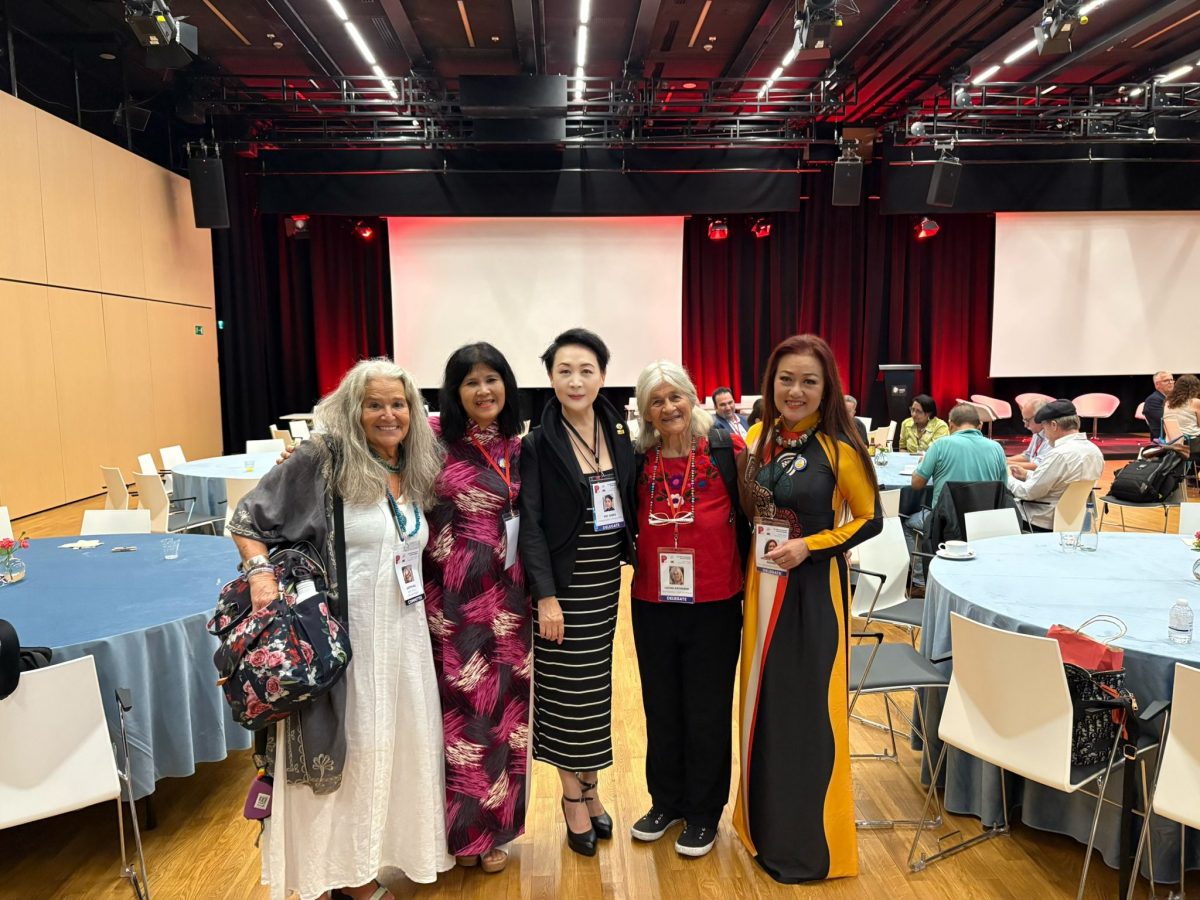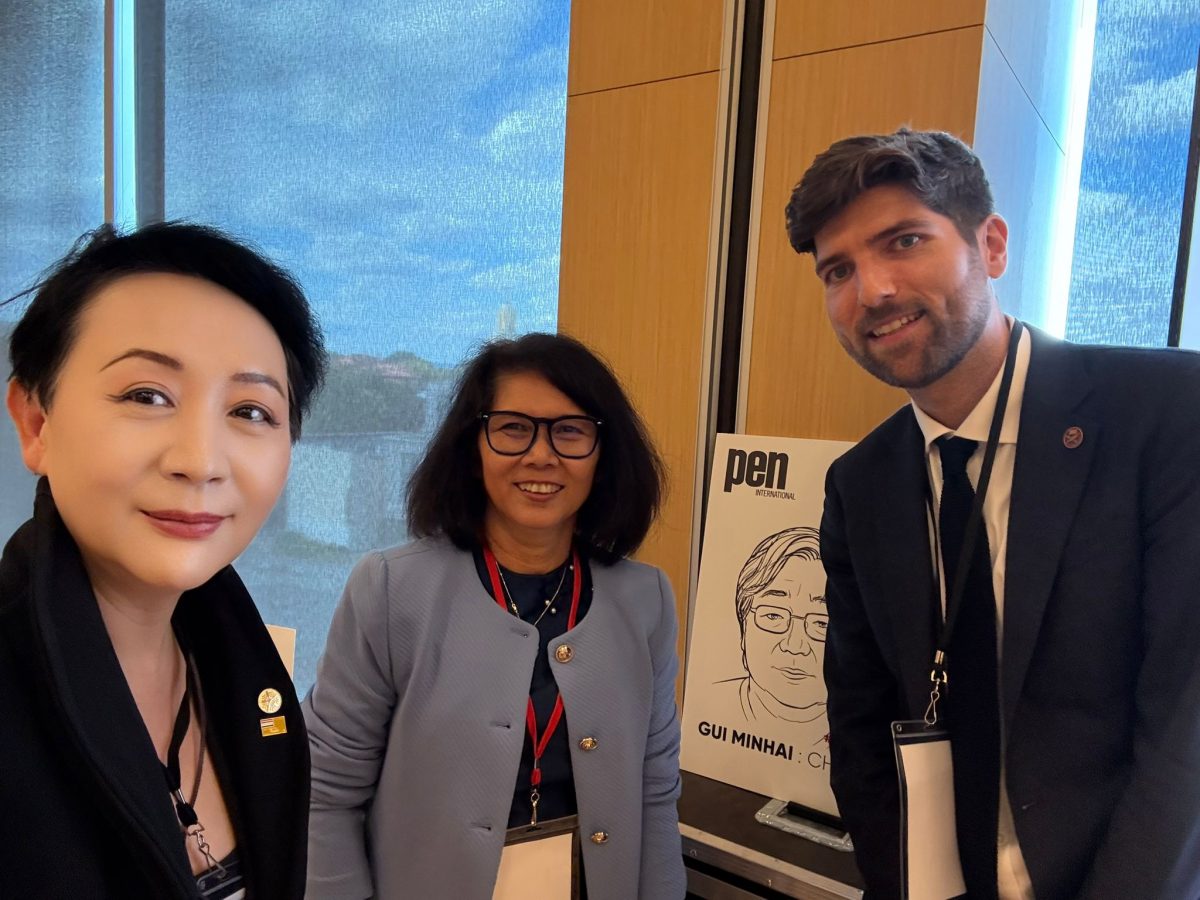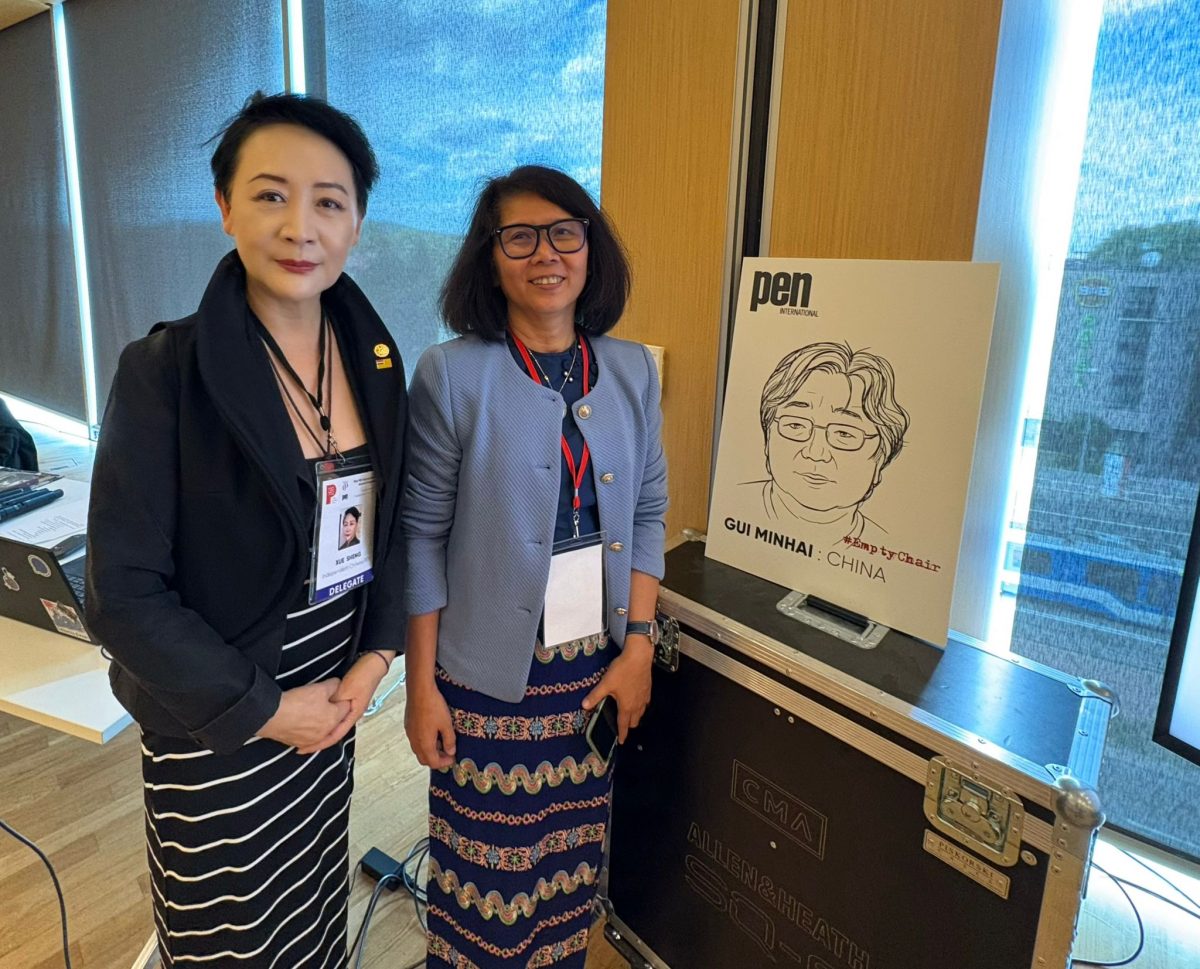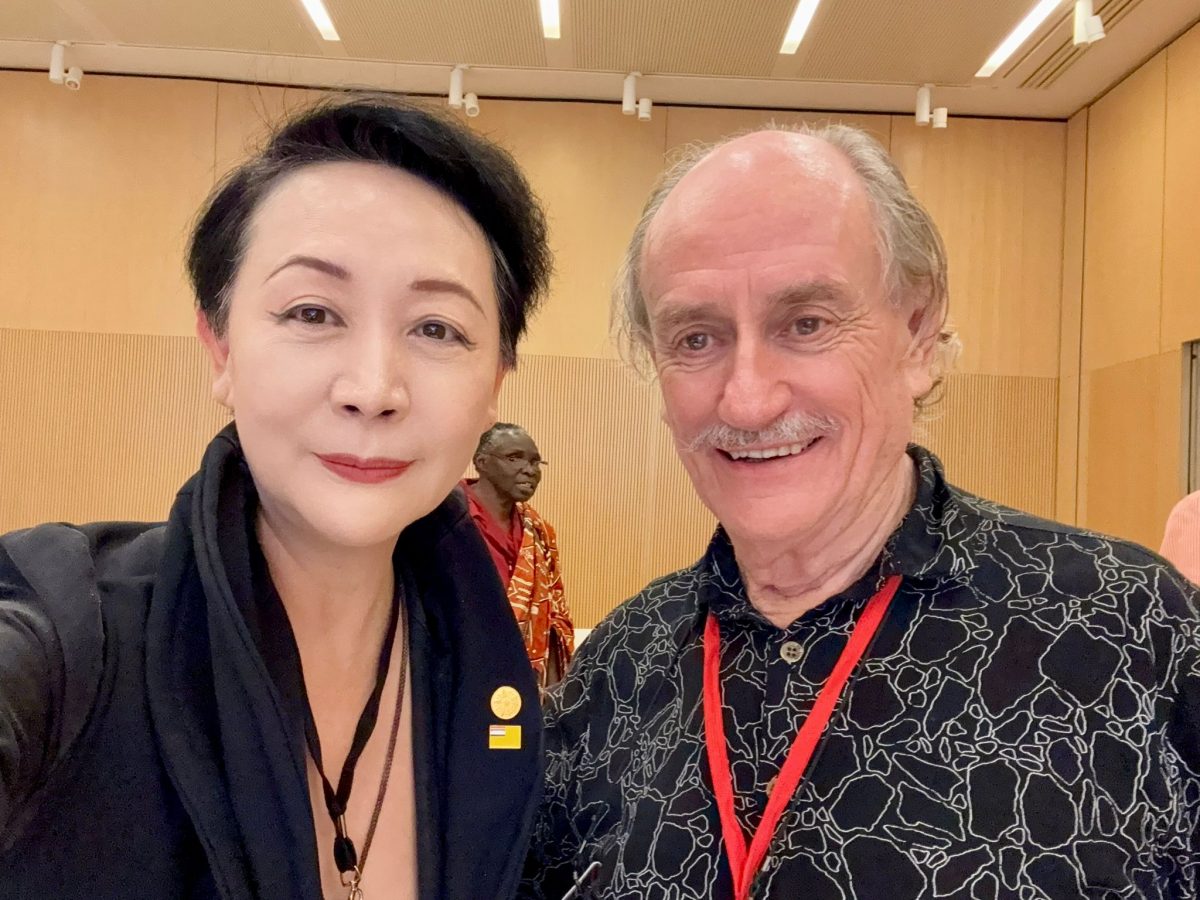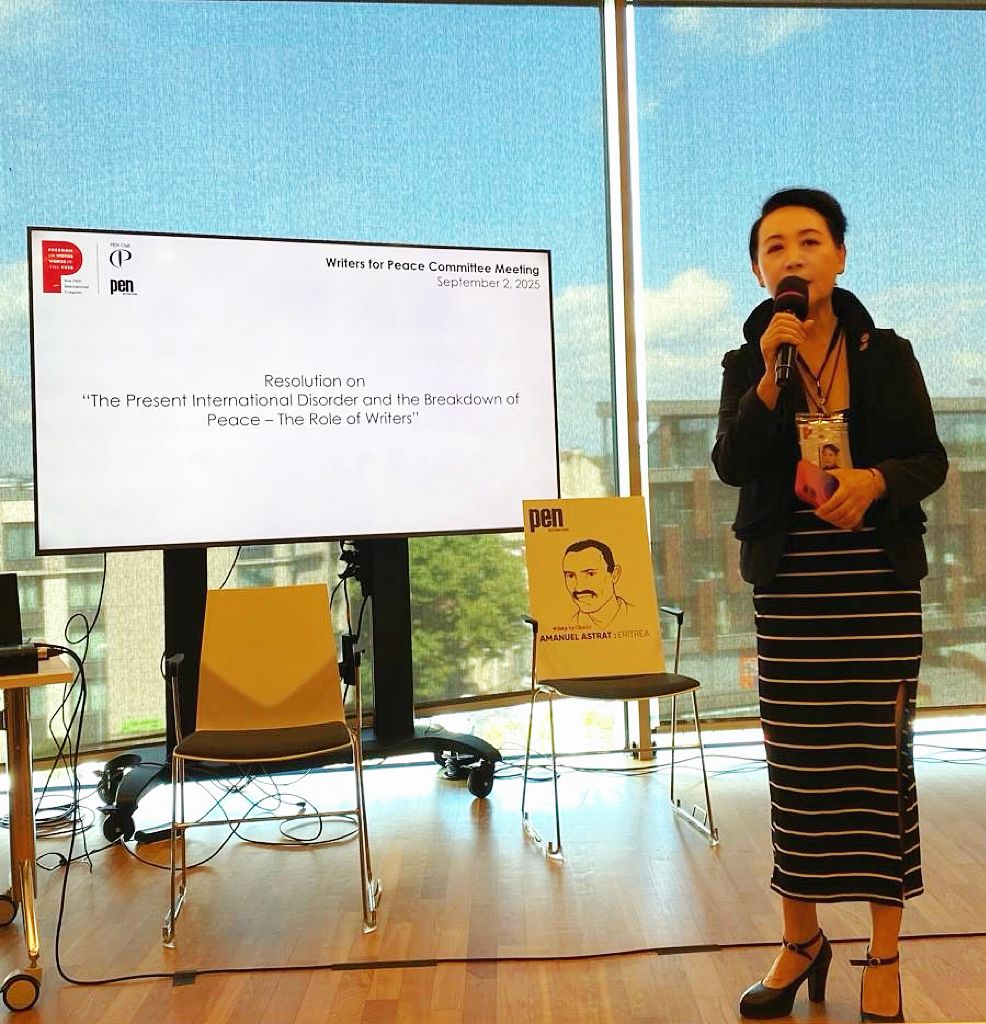Spokesperson Sheng Xue, representing the Independent Chinese PEN Center, attended PEN International’s 91st Congress in Kraków, Poland from 2nd to 5th September 2025. The following is her speech at the Peace Committee:
I made some changes to what said.
I am from Canada, representing ICPC as its spokesperson.
I also served as Vice President of PEN’s Writers for Peace Committee from 2016 to 2019.
I missed a few years of conferences starting in 2020 due to the pandemic. I am so glad to see you all here.
Our committee is Writers for Peace, and people naturally focus on the harm that war does to peace. That’s obvious.
I’ve emphasized before that tyranny under fake peace is an extreme form of war.
After World War II, the international community was deeply afraid of war, especially the genocide caused by large-scale violence and war. Therefore, the United Nations has been working hard to avoid direct armed conflict and tried to prevent the war but failed. Instead, it helped the communist tyranny to become stronger and stronger, such as the Soviet Union and the Chinese Communist Party.
The former Soviet Union, now Russia, China, and North Korea, have become the biggest threats to world peace.
I emphasized at a previous PEN International conference that Tyranny under the fake peace is actually more terrifying than war.
Do we have representatives from Tibet, the Uighur region, or Southern Mongolia communities? It seems we don’t have any.
I have highlighted the dire situations in Tibet, the Uighur region, Southern Mongolia, Hong Kong and other places.
Then I thought about Manchuria. Who knows about Manchuria?
It seems most people don’t.
From 1932 to 1945, Manchuria was a great modern civilization. Its economy was the largest in Asia and the fourth largest in the world. After it was occupied by the Chinese Communist Party, it was wiped off the map.
No one was allowed to mention about Manchukuo anymore. CCP just wanted to totally destroy the history, culture, language, belief of Manchuria and killed many people.
The CCP’s infiltration has now spread to every corner of the world, including the United States, Canada, Australia, Japan, and European countries. The recent political turmoil in South Korea was also due to CCP interference.
The CCP is the biggest threat to world peace.
As we discuss literature, poetry, and freedom of expression here, the word Manchuria itself is strictly prohibited under the tyranny of the Chinese Communist Party.
I hope that when we formulate plans and goals, we will take the harm caused by the CCP’s tyranny into consideration.
At the Writers in Prison Committee meeting, she said:
I hope the Writers in Prison Committee will develop a dedicated support and assistance program for writers who have spent extended periods in prison, such as ICPC Honorary Member Wang Bingzhang, who has been imprisoned for 23 years. He was abducted from Vietnam by the CCP in 2002 and brought back to China, where he was sentenced to life imprisonment.
Another figure familiar to PEN members is Gui Minhai, who was abducted from Thailand by the CCP ten years ago and brought back to China. After five years of detention and torture in a black jail, he was sentenced to another ten years.
He has been in prison for 10 years. What’s even more terrifying is that his family cannot visit him. His daughter said that they don’t even know where he is.
There’s also Hu Shigen, who was arrested and imprisoned multiple times, spending a total of over 23 years in prison.
Qin Yongmin, who has been arrested, imprisoned, and sentenced numerous times since the early 1980s, has spent a total of about 30 years in prison.
Not only do they have long sentences, but their extremely difficult situation has a huge impact on their psychological, spiritual and physical health, as well as on their families, relatives, circle of friends and even their original environment
There are also writers who have served long prison sentences. Even after their release, the CCP authorities not only keep them under strict surveillance, but also make it almost impossible for them to find good jobs, or even forbid them to work at all. For example, the writer and poet Li Bifeng was arrested and sentenced three times, spending 22 years in prison. After his release, he has been under strict surveillance and could hardly find any work.
At the same time, many Chinese poets, writers, and journalists have been briefly detained and sentenced by the authorities. After their release, they have similarly been placed under strict surveillance, and many are unable to find work.
The CCP’s goal seems to be to leave these writers to fend for themselves.
I hope that PEN International’s Writers in Prison Committee or its Emergency Relief Fund will take into consideration the difficult situation of Chinese writers.
During the meeting, she voted and made comments and suggestions on the following proposals:
- Climate Justice
- Freedom of Expression in the U.S.
- Gender Diversity, Transgender Rights, and WPS Agenda
- International Disorder and the Role of Writers
#1 Climate Justice
She believed the document did identify many real issues and factual evidence. The demands and recommendations presented were also within the bounds of reason. Therefore, she voted in favor.
#2 Freedom of Expression in the U.S.
She voted against it. If there were to be a continued discussion session, she would speak. If there were no opportunity for discussion, she would vote against it.
#3 Gender Diversity, Transgender Rights, and WPS Agenda
She voted in favor.
#4 International Disorder and the Role of Writers
She voted against it.
